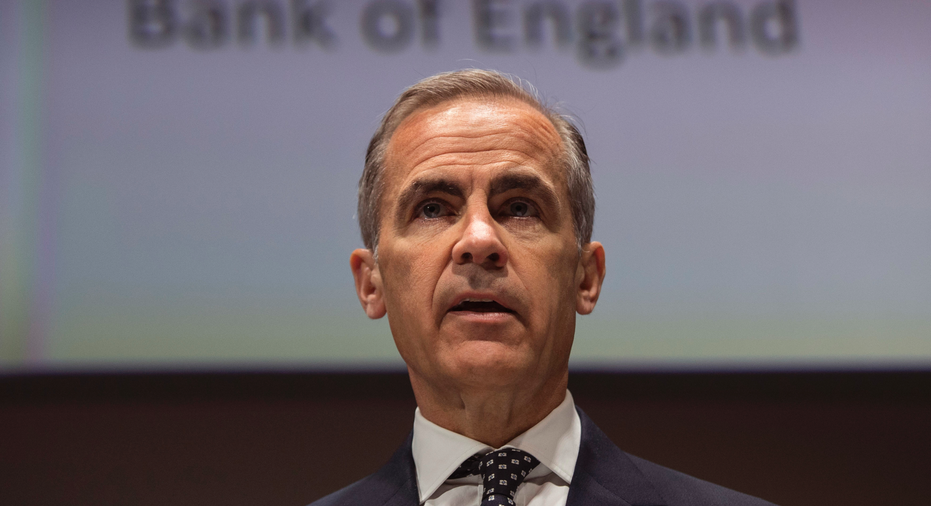Amid mounting Brexit concerns, UK economy is barely growing

LONDON – A day after the Bank of England's governor warned about the damaging consequences of a "disorderly" Brexit, official figures Friday confirmed that the British economy barely grew in the first three months of the year.
The Office for National Statistics said the economy expanded by a quarterly rate of just 0.1 percent amid weak household spending and business investment. Both have been held by factors directly related to the country's vote to leave the European Union.
Household spending, which rose just 0.2 percent in the first quarter, has been held back by the inflation stoked by the pound's sharp fall in the aftermath of the Brexit vote, which led to a rise in the cost of imports.
Meanwhile, business investment fell by 0.2 percent, with executives seemingly cautious amid uncertainty over Britain's future relationship with the EU, its biggest trading partner. With firms' balance sheets healthier than they have been for years and with the global economy — in particular Europe — doing better than expected, business investment should be rising.
For those wishing to blame the low growth on late winter weather, the statistics agency noted that the impact was fairly minimal. It said bad weather had some impact on the economy, particularly in construction and retail, but that its overall effect was limited.
The low growth was one of two main reasons why the Bank of England did not raise its main interest rate by a quarter-point this month to 0.75 percent, as it had earlier signaled it would. The other was that inflation had come down more sharply than anticipated.
The latest growth figures come a day after Bank of England Governor Mark Carney warned that a "disorderly" Brexit could push the bank into the same sort of exceptional stimulus it unleashed after the country voted to leave the EU two years ago. Then, the bank's Monetary Policy Committee cut its main rate to a record low of 0.25 percent and enacted some further stimulus measures to shore up confidence.
Amid signs that the British government's Brexit negotiations with the EU are making little headway and could in fact be deteriorating, Carney told an audience of economists late Thursday that a "sharper" Brexit may lead policymakers to pursue a similar response.
"For example, if the transition were disorderly, or the end state agreement materially worse than the average potential outcome, then the MPC could once again be confronted by a trade-off between the speed with which it returns inflation to target and the support policy provides to jobs and activity," he said.
"On this path, the MPC can be expected to set policy to manage any trade-off using the framework it applied following the referendum."
Though acknowledging that the Brexit vote has already hurt the economy by raising inflation and hindering investment, the bank has operated on the assumption that the transition to a new trading relationship with the EU would be smooth.
That gave it room to raise its main rate in November to 0.5 percent, its first hike in a decade, even though economic growth has slowed noticeably.
With the British government split over several issues related to Brexit and Prime Minister Theresa May losing a series of votes in Parliament, there's growing concern that there won't be a deal by the fall. That means the country could end up crashing out of the EU next year without a deal that would, among other things, see tariffs slapped on British exports.
The aim of the Brexit discussions was to get a political deal by about October to give individual EU parliaments' the time to approve the agreement before the official Brexit date of March 29, 2019. After that, Britain would remain in the tariff-free and frictionless European single market and customs union until the end of 2020 to smooth the process — but that transition period depends on a broad agreement being reached.
On Thursday, the cross-party Commons Exiting the European Union Committee said it was "highly unsatisfactory" the government had yet to agree on the post-Brexit trading and customs arrangements and that the country may have to stay in the customs union for years after Brexit.



















